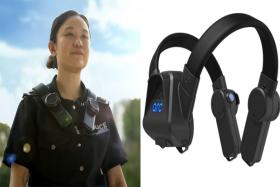Engineering a better engineer
Those in the field shouldn't just give technical solutions; soft skills like communication, design and collaboration are crucial too
Understanding what makes a city resilient, sustainable and future-ready requires serious collaboration between government, urban planners, scientists, economists and engineers.
Through this partnership, we can connect the software, hardware and "heartware", giving the city its own unique buzz.
Today's problems are messy and complex, whether it is designing smart cities, eliminating poverty or mitigating climate change. Building a smart nation will need smart engineers: not "smart" in just the technical sense, but more unconventional smarts.
For example, being engaging, persuasive, collaborative or co-creative - traits not normally associated with the stereotypical introverted engineer.
Take the drive for Singapore to go cashless. I would argue that building the infrastructure backbone and connecting the bits and bytes is the easy part.
The harder part is how to ensure that the users enjoy convenience without feeling that their privacy has been compromised, or that the disadvantaged are not left behind.
I believe that engineers have an important role to play in designing the shape of our future.
We are already doing it, being responsible for designing and building the infrastructure upon which human progress rests. Unlike architects, much of our work is invisible and often taken for granted. It is only when things such as trains and lifts break down, that the engineer is summoned (or blamed).
So, we tend to be seen as problem-solvers.
It is time for engineers to play a more active part in the design of a better future.
An example is how billionaire technopreneur Elon Musk changed the energy debate, setting the agenda for the modern energy market as opposed to following someone else's path.
But how?
First, we must retain our technical mastery. Whether we are civil, mechanical, or IT engineers, we must be masters of our craft to allow us to speak from a position of authority.
Secondly, we should develop soft skills such as communication, collaboration, design and trans-disciplinary thinking.
This will allow us to be more persuasive, like Mr Musk who is able to bring "nerdy topics" to a broad-based audience and fire their imaginations.
I suspect the second will be harder of the two. The science of engineering teaches us to apply the immutable laws of physics and maths to solve problems.
The solution is either right or wrong; something will either work or not.
But having a technicalsolution is not enough. We must be able to incorporate the human element. And that is never black and white; more often it is a spectrum of greys.
To be a T-shaped engineer - one with deep technical expertise and broad-based soft skills - can be done.
Disruption is not new to the world of engineers. In the last 50 years, we have gone from slide rules to Auto-CAD (computer-aided design) to designing in 4D. We have seen our jobs outsourced to cheaper locations. Ironically, if an algorithm can be written to automate something, we are often the ones to do it.
I am frequently asked whether an engineer can be replaced by artificial intelligence.
My response is this: Any engineer who can connect their technical mastery to human needs will not be easily replaced.
The writer is Global Director of Excellence and Expertise at Aurecon. This article, which was published in The Business Times on Tuesday, is based on a lecture he delivered on Sept 26 at the National University of Singapore.
Get The New Paper on your phone with the free TNP app. Download from the Apple App Store or Google Play Store now

